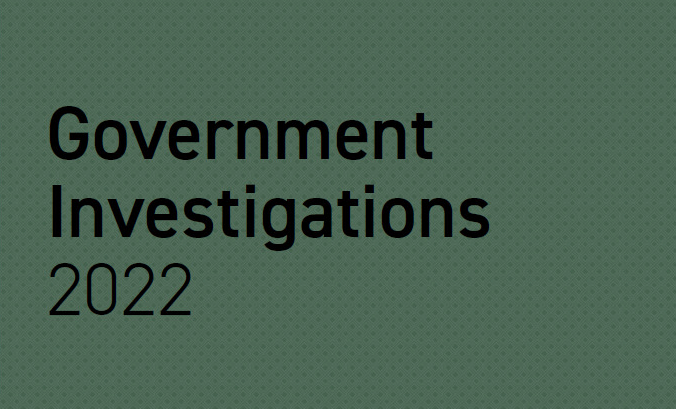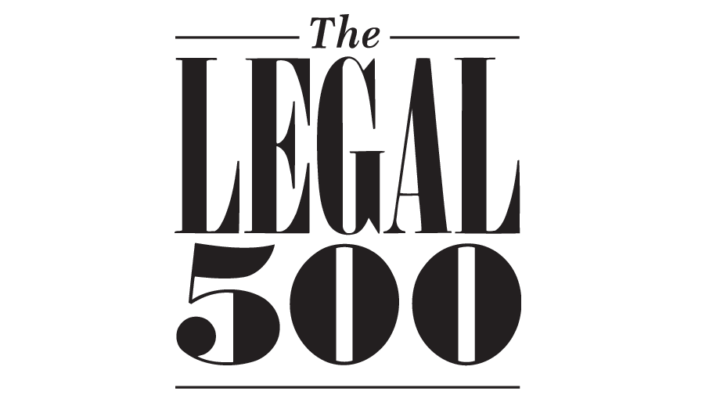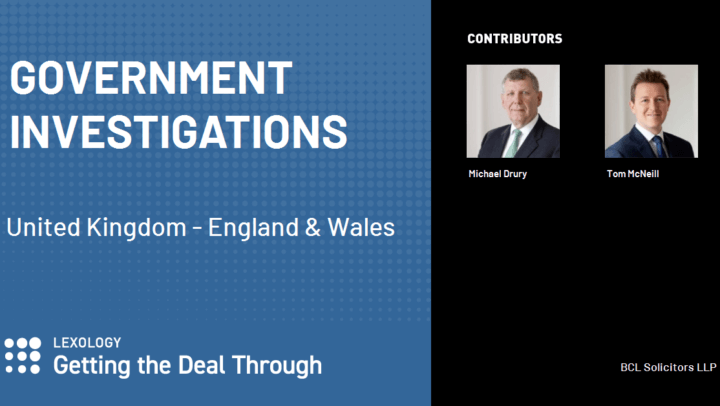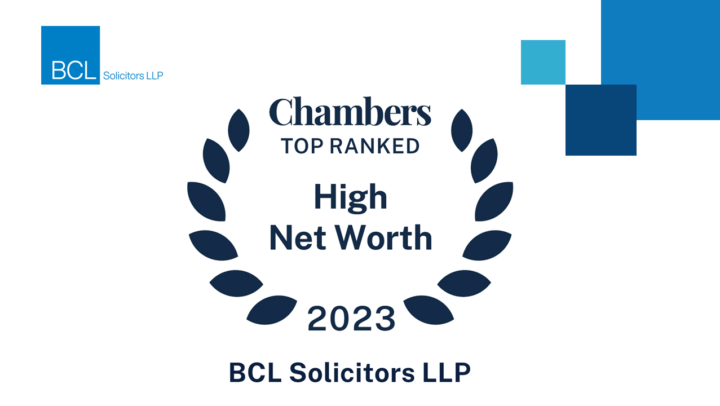BCL partner Michael Drury has written the England and Wales chapter of Getting the Deal Through’s Government Investigations 2022 guide from Lexology.
Here’s an extract from the guide focusing on cooperating with government investigations in United Kingdom:
Is there a mechanism by which a target business can cooperate with the investigation? Can a target notify the government of potential wrongdoing before a government investigation has started?
There are mechanisms by which a target business can cooperate and these depend on the agency conducting the investigation. It is always open to a target business to report wrongdoing to the authorities at any time. There are obvious advantages in doing so.
In relation to Serious Fraud Office (SFO) investigations and other investigations where the prosecution decision lies with the Crown Prosecution Service (CPS), companies that wish to avoid prosecution and enter into a deferred prosecution agreement (DPA) must generally:
- self-report any misconduct (ideally before the prosecutor discovers the misconduct);
- commit to resolving the issue;
- cooperate fully and agree to conduct any further investigation (and share the results with the prosecutor);
- agree to provide appropriate restitution; and
- implement a programme of training and culture change (which may include the appointment of an independent monitor).
Since their introduction in February 2014, the frequency of DPAs has steadily increased in number. They are now a well-recognised feature of SFO prosecutions and an important part of its armoury, especially where the offence of a corporate’s failure to prevent bribery as defined in section 7 of the Bribery Act 2010 is concerned (given the lack of a need to demonstrate guilty knowledge by the corporate).
Following the DPAs in respect of Standard Bank Plc, XYZ Ltd, Rolls-Royce, Tesco and more, a clear precedent for the terms of a DPA has now been established. Businesses now have a ‘rule book’ to determine whether to pursue a DPA, noting that there are circumstances in which a business may wish to pursue a civil settlement and the advantages of doing so. Self-reporting has often been used by businesses to negotiate a civil settlement rather than plead to a criminal charge or enter into a DPA.
However, cooperation does not guarantee that a prosecution will be avoided or that a business will be invited to enter into a DPA. If prosecuted, cooperation is likely to be an important mitigating factor taken into consideration to reduce a financial penalty and the business may agree on a basis of plea with the prosecution to reduce culpability. This can be important in safeguarding the reputation of the business.
A key issue is what it means to give full cooperation and the extent to which full cooperation requires a waiver of legal professional privilege. Investigating agencies suggest that it does or that the company’s investigations do not give rise to legal professional privilege claims. In any event, careful consideration is required regarding how a business positions itself, taking into account potential civil claims, reputational management and pure business drivers.
The outcome of Tesco, Rolls-Royce and most recently Serco led to criticism as to whether the admitted liability has been properly established in the DPA and its effect on individuals. In Tesco, a DPA was approved in circumstances where individuals whose culpability was said to give rise to Tesco’s liability were found to have no case to answer, and in Rolls-Royce no individual who might have been regarded as the controlling mind of the company was prosecuted at all. In Serco, two senior executives were cleared on the basis of insufficient evidence despite the company having entered into a DPA. Such outcomes reinforce the sense that the DPA is effectively a corporate tool to allow alleged wrongdoing to be consigned to the pages of history by the payment of money.
Any formal cooperation by an individual with the SFO or the CPS resulting in either leniency in sentencing (sections 73 and 74) or immunity from prosecution (section 71) is governed by the Serious Organised Crime and Police Act 2005. It is also possible for a business to cooperate informally, without seeking immunity from prosecution and this will usually result in reduced financial punishment.
In general terms, a business that cooperates with a Financial Conduct Authority (FCA) investigation will receive a significant reduction in any financial penalty and the opportunity to have substantial input in the wording of any published final notice.
Under the Enterprise Act 2002, the Competition and Markets Authority (CMA) may grant criminal immunity to individuals and civil immunity to businesses in relation to cartel investigations in certain circumstances. Where immunity is not available but a business cooperates with an investigation, the CMA can apply leniency to any civil sanction.
Voluntary disclosure programmes
Do the principal government enforcement entities have formal voluntary disclosure programmes that can qualify a business for amnesty or reduced sanctions?
Each agency has a form of voluntary disclosure programme that may result in immunity from prosecution or a reduced sanction. It is important to bear in mind that these programmes are within the discretion of the agency and are not guaranteed as a matter of law. In the case of businesses, a DPA is possible if a business admits to criminal conduct but avoids prosecution by entering into an agreement with the prosecuting authority (subject to court approval). Along with paying a significant financial penalty, other steps are normally imposed as conditions of a DPA, and these typically include restitution, change in business practices and the appointment of an independent monitor. Voluntary disclosure is generally regarded as a precondition of such agreements.
Timing of cooperation
Can a target business commence cooperation at any stage of the investigation?
Yes. If a business decides to cooperate in an investigation, the earlier it does so, the more credit will be given and the better the overall outcome is likely to be.
Cooperation requirements
What is a target business generally required to do to fulfil its obligation to cooperate?
Cooperation requirements for a target business will vary according to which agency it is dealing with and the particular circumstances of the case. However, there is a minimum expectation that a target business will go above and beyond legal requirements to receive credit for cooperation. Notwithstanding that, credit is not guaranteed.
In general terms, a business should commit to:
- resolving any misconduct and preserve and provide relevant documents associated with doing so;
- agree to conduct or cooperate fully with any further investigation;
- agree to provide appropriate restitution or disgorge its profits from the misconduct;
- implement a programme of training and culture change within the business; and
- agree to cover investigation costs.
Practically, this requires consideration of and the likelihood of a waiver of legal professional privilege. Notably, cooperation does not cease upon the grant of a DPA. Rather, the company undertakes to maintain its cooperation throughout the lifetime of the agreement, which can include an obligation to cooperate with overseas law enforcement.
The SFO has specifically published its Corporate Co-operation Guidance to assist in the assessment of what full cooperation requires.
You can read the full guide on the Lexology website or here via PDF.




